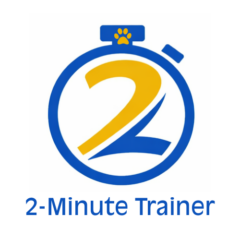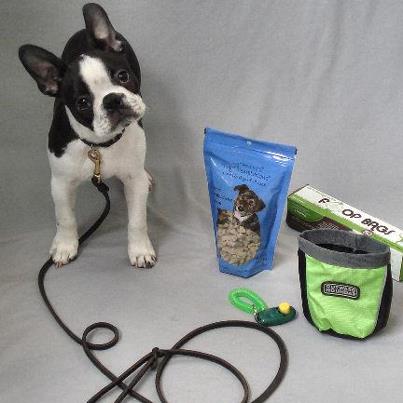What do you do when society’s dictates conflict with your goals? If you’re out trying to train your dog and somebody wants to “say Hello!” to your dog? You want to be nice. But being nice isn’t dog training.
A longtime friend who’s also a very experienced dog trainer is a student in our Puppy Obedience class this session. While it’s always great to see friends, most people would wonder why she’s there. After all, she’s been training dogs for many years. And even though she does have a new puppy, she pretty much knows all the ins and outs of household obedience training.
She’s there for the same reasons we take our own dogs to someone else’s puppy classes. One is because we want our puppies to go to new places, experience new things, and learn how to act in public. That’s the socialization part.
The other part is that most people, from family and friends to complete strangers, won’t pay attention when you ask them to help further your training.They won’t follow your instructions on how you want puppy interactions to go. And a good proportion of those people will undermine what you’re doing. If not deliberately, then accidentally.
Hop on Pop
The easiest example most people can identify with is when your puppy (or dog) jumps on people to say hello. Almost every single person will give the puppy the attention he’s asking for. Which is rewarding the dog for misbehaving, guaranteeing that it will happen again. And again.
It’s hard to find people who will stand like statues and stare at the ceiling while an adorable little puppy is jumping on them, pawing them, nudging them, and begging for their attention. It’s almost as hard for the owner of the puppy to let it happen. Your first instinct is to make it stop, even if you have to grab the puppy by the collar and haul it away. Again, that gives the puppy exactly what it’s looking for – attention.
Good or bad doesn’t matter
Dogs want attention. They make absolutely no distinction between positive and negative attention. If you’re focusing on them, they don’t care whether you’re yelling or praising. Dogs seem to be hard-wired to accept all attention from humans as rewarding. And dogs always do the thing that’s most rewarding to them.

The result is that our job as a puppy instructor rarely allows us to interact with the puppies. That’s painful because we love playing with puppies. We love it even more when they’re not our puppies to clean up after and we get to send them home with someone else.
But we don’t get to do that. We get to stand there with our arms folded, staring at the ceiling, until the instant the puppy has “four on the floor.” At first, that “Good Off!” moment only lasts an instant, and then we’re staring at the ceiling again. By the third week of class, most puppies are sitting politely when we come to say “Hello!” And the bargain is sealed. The dog gets what it wants (attention) when we get what we want (polite greetings).
Be rude if you must
So what can you do when people don’t cooperate? Advocate for yourself and for your dog. If you’re walking your puppy (or dog) and a stranger asks if they can say “Hello!” or pet your dog, you set the rules. Most people will get it if you say “Only if he sits by you.” They probably won’t notice or pay attention when the puppy pops out of position with the first touch. Then you have to step in and ask them to stop until the dog behaves again.
The frustration comes when the person doesn’t comply. “Oh, he’s fine, let me say hello.” And you’re considered a meanie if you don’t allow it. Much as you want to be kind to strangers, your dog is more important than that person’s urge to pet the puppy. Your dog, your rules. Just say “I’m sorry, but we have to go.” And do it. Then come to our classes. We’ll ignore the heck out of your puppy.

